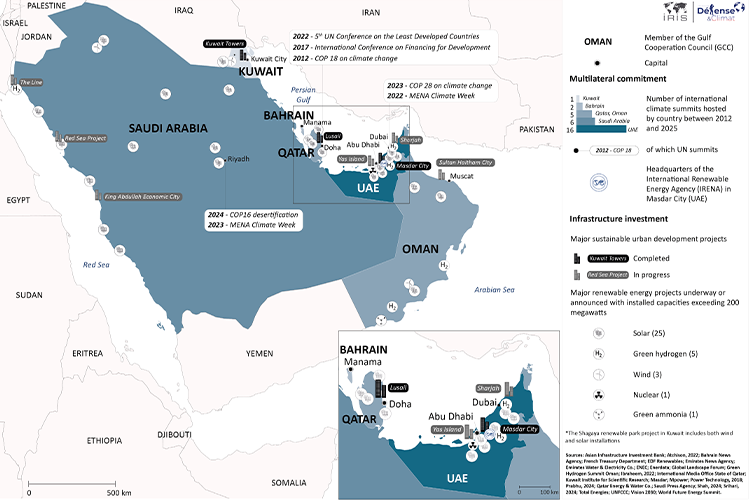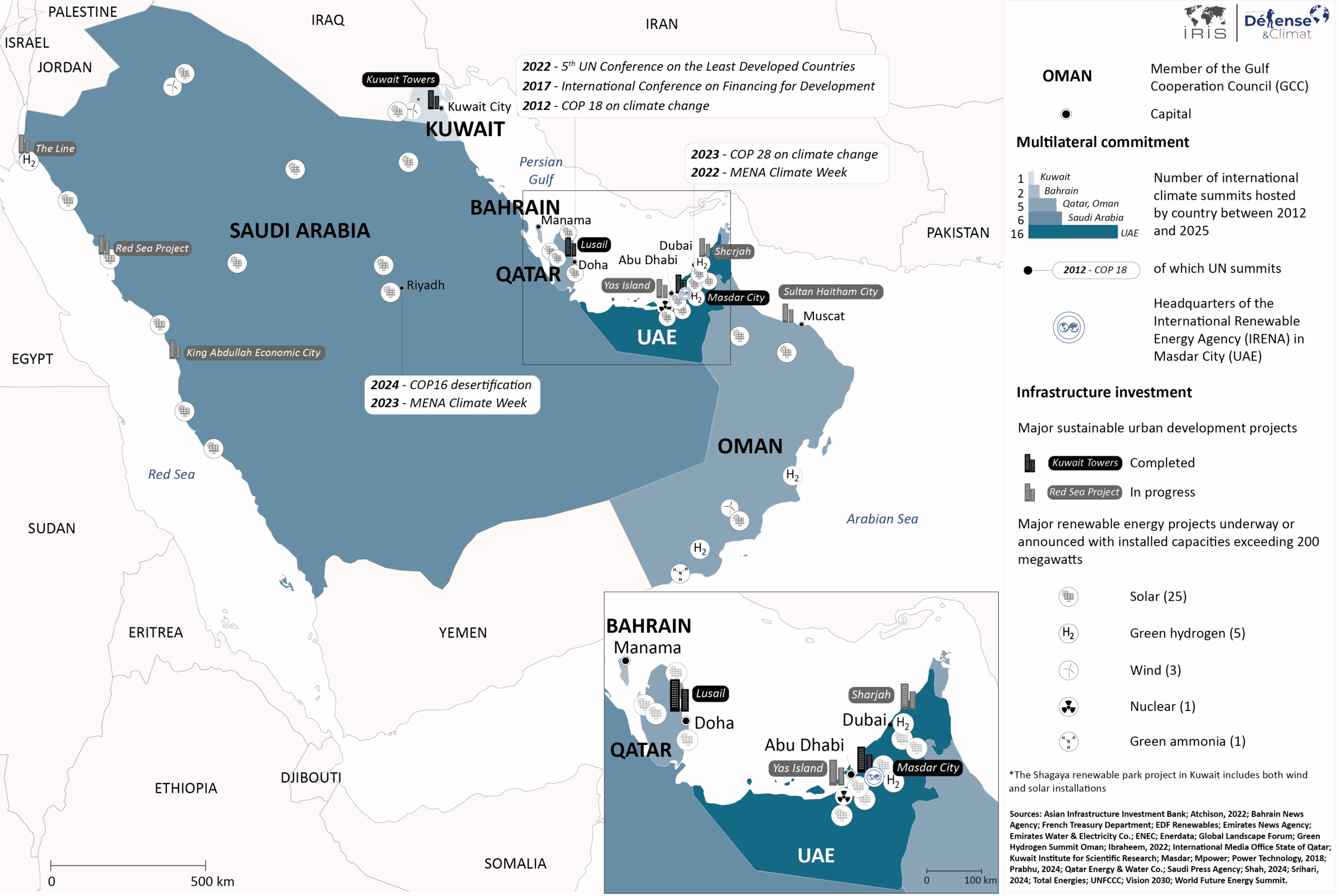Cartographies / Defence and Climate Observatory
13 May 2025
The climate diplomacy of the Gulf monarchies

The evolving position of the Gulf monarchies in international environmental and climate negotiations since the 1990s is characterised by a progresive consideration of the influence and strategic issues linked to climate change by these states. Their growing involvment in these negotiations and their energy transition are firstly driven by strategies of influence and economic and technological development, without completely questionning the regional economic system based on the extraction of natural resources.
The Gulf States’ proactive approach to climate diplomacy is particularly emphasized by the determination of the Gulf Cooperation Council (GCC) countries, especially Qatar and the UAE, to impose themselves as key actors in negotiations by hosting multilateral summits on environmental, climate and energy issues. They have a head start in this area, having organised multilateral summits since the 2010s – with COP18 in Doha being the first event of its kind organised in the Arabian Peninsula. The four other countries, especially Saudi Arabia, also want to get involved in this multilateral agenda by stepping up the organisation of summits since 2020.
This map comes from the “Climate Diplomacy of the Gulf Monarchies: Leverage and Power Tool” note published within the scope of the IRIS Défense & Climat Observatory on behalf of the French Ministry of the Armed Forces’ Directorate General for International Relations and Strategy (DGRIS).




